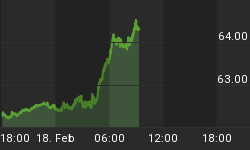With some heavy prodding by the Biden Administration, earlier this month, 132 nations agreed to a global minimum tax on corporations, with the Organization for Economic Co-operation and Development (OECD) saying they had backed a proposed minimum corporate tax rate of at least 15%, which could generate about $150 billion in tax revenues a year.
US Treasury Secretary Janet Yellen applauded the agreement for sending a message that a "race to the bottom" on tax rates was coming to an end.
"For decades, the US has participated in a self-defeating international tax competition, lowering our corporate tax rates only to watch other nations lower theirs in response,” she said.
All G20 countries, including heavyweights such as the U.S., the UK, China, and France backed the agreement.
But now, the global tax package is being threatened, by Ireland, of all places.
Ireland’s Finance Minister, Paschal Donohoe, told local media that the country will not be part of the agreement, noting that the rate of 12.5% has been a key feature of Ireland's economic policy for decades and that he is committed to retaining this low corporate tax.
Ireland's corporate tax rate has attracted many global businesses. It’s attractive, indeed, considering the U.S. rate of 21% and the UK’s 19%.
For the past month, Irish authorities have met, on and off, with the European Union and U.S. officials, but so far, Ireland won’t budge.
Ireland's business tax system has also made international headlines over the years, including with Apple. The EU ordered the tech giant to pay $17 billion in taxes. Ireland fought against the EU, and won.
The White House now is calling for a revamp of the U.S. tax code’s approach to international taxation by increasing the minimum tax on the overseas profits of American companies from 10.5% to 21%.
In late March, Biden proposed increasing the corporate tax rate to 28% to pay for his $2.3-trillion infrastructure plan.
According to the plan, the funding would come from raising the corporate tax rate from 21% to 28%. That would pretty much unwind the lower corporate rate at 10.5% placed by the previous Trump administration. However, it is still less than the 35% it had been prior to the 2017 tax cuts.
Biden also wants to boost IRS funding by $80 billion over the next decade to fight tax evasion by wealthy Americans and corporations.
Due to personnel cuts at the IRS, a Syracuse University report found that tax audits have dropped by 72%, to 11,331 in 2020, from 40,965 in 2012. At the same time, the number of millionaires has nearly doubled since 2012.
During the presidential campaign, Biden laid out his tax plan, which would not only increase taxes for corporations but for wealthy individuals as well.
The administration estimates that stepping up tax enforcement and closing tax loopholes for large corporations that pay zero dollars in taxes, would bring in $700 billion over the next decade.
Many wealthy people, those from the U.S. included, are finding every loophole they can to avoid being taxed. One way is to buy new citizenship.
According to the latest report by investment immigration and relocation provider Astons, the interest of wealthy people in buying secondary citizenship during the pandemic skyrocketed in 2020.
UK-based passport broker Henley & Partners saw a 42% increase in overall citizenship
applications this year. The most popular “pandemic passports” or permanent residency programs are those of Australia, Antigua, St Kitts, and Nevis, Tuvalu, Vanuatu, Austria, Switzerland, Portugal, Cyprus, Malta and Montenegro. All money safe-havens.
The most expensive are the UK, Singapore, and Austria where passports go for up to $23 million.
The cheapest locations in which to buy citizenship are Caribbean nations. Buying second citizenships ranges from $100,000 in the island of Dominica to a minimum of $2.4 million in Cyprus
And there are all those already established tax safe-havens, such as Luxembourg, a tiny state in the European Union that costs the world $28 billion in lost tax every year.
Over the last few years, the Financial Secrecy Index has been ranking the same destinations in the same order in terms of their safe haven lure. However, in the 2020 report, for the first time in 11 years, Switzerland didn't rank at the top of its list.
The top spot this year goes to the Cayman Islands, followed by the United States, which overtook Switzerland in global ranking of financial secrecy hotbeds. The report found that Caymans holds $1.4 trillion in assets managed through 200 banks.
















